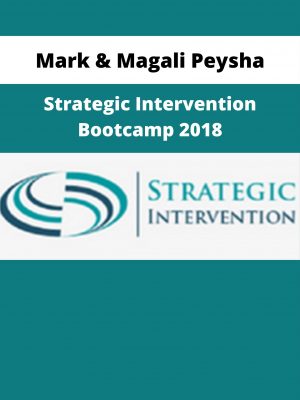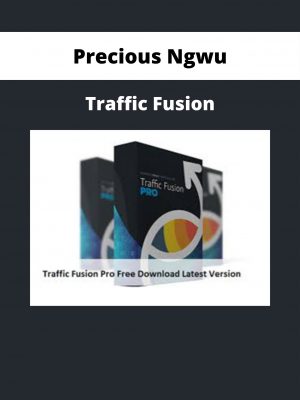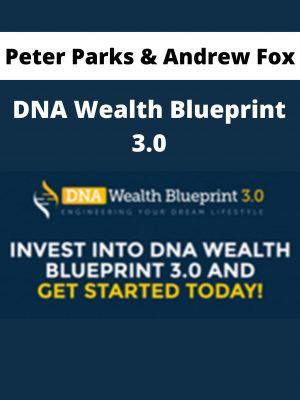Lean Six Sigma Green Belt Basics Gain Solid Understanding
$100 Original price was: $100.$33Current price is: $33.
Shopping Instructions:
- DISCOUNT 15% : SHOP15
- Product Delivery: Within 1 – 12 hours after purchase.
Thank you all for the huge response to this emerging course! We are delighted to have over 20,000 students in over 160 different countries. File Size: 2.1 GB
Lean Six Sigma Green Belt Basics Gain Solid Understanding
Course Most Recently Updated Nov/2018!
Thank you all for the huge response to this emerging course! We are delighted to have over 20,000 students in over 160 different countries. I’m genuinely touched by the overwhelmingly positive and thoughtful reviews. It’s such a privilege to share and introduce this important topic with everyday people in a clear and understandable way.
I’m also excited to announce that I have created real closed captions for all course material, so weather you need them due to a hearing impairment, or find it easier to follow long (great for ESL students!)… I’ve got you covered.
Get immediately download Lean Six Sigma Green Belt Basics Gain Solid Understanding
Most importantly:
To make this course “real”, we’ve expanded. In November of 2018, the course went from 41 lectures and 8 sections, to 62 lectures and 15 sections! We hope you enjoy the new content!
Unlock the secrets of understanding Machine Learning for Data Science!
In this introductory course, the “Backyard Data Scientist” will guide you through wilderness of Machine Learning for Data Science. Accessible to everyone, this introductory course not only explains Machine Learning, but where it fits in the “techno sphere around us”, why it’s important now, and how it will dramatically change our world today and for days to come.
Our exotic journey will include the core concepts of:
The train wreck definition of computer science and one that will actually instead make sense.
An explanation of data that will have you seeing data everywhere that you look!
One of the “greatest lies” ever sold about the future computer science.
A genuine explanation of Big Data, and how to avoid falling into the marketing hype.
What is Artificial intelligence? Can a computer actually think? How do computers do things like navigate like a GPS or play games anyway?
What is Machine Learning? And if a computer can think – can it learn?
What is Data Science, and how it relates to magical unicorns!
How Computer Science, Artificial Intelligence, Machine Learning, Big Data and Data Science interrelate to one another.
We’ll then explore the past and the future while touching on the importance, impacts and examples of Machine Learning for Data Science:
How a perfect storm of data, computer and Machine Learning algorithms have combined together to make this important right now.
We’ll actually make sense of how computer technology has changed over time while covering off a journey from 1956 to 2014. Do you have a super computer in your home? You might be surprised to learn the truth.
We’ll discuss the kinds of problems Machine Learning solves, and visually explain regression, clustering and classification in a way that will intuitively make sense.
Most importantly we’ll show how this is changing our lives. Not just the lives of business leaders, but most importantly…you too!
To make sense of the Machine part of Machine Learning, we’ll explore the Machine Learning process:
How do you solve problems with Machine Learning and what are five things you must do to be successful?
How to ask the right question, to be solved by Machine Learning.
Identifying, obtaining and preparing the right data … and dealing with dirty data!
How every mess is “unique” but that tidy data is like families!
How to identify and apply Machine Learning algorithms, with exotic names like “Decision Trees”, “Neural Networks” “K’s Nearest Neighbors” and “Naive Bayesian Classifiers”
And the biggest pitfalls to avoid and how to tune your Machine Learning models to help ensure a successful result for Data Science.
Our final section of the course will prepare you to begin your future journey into Machine Learning for Data Science after the course is complete. We’ll explore:
How to start applying Machine Learning without losing your mind.
What equipment Data Scientists use, (the answer might surprise you!)
The top five tools Used for data science, including some surprising ones.
And for each of the top five tools – we’ll explain what they are, and how to get started using them.
And we’ll close off with some cautionary tales, so you can be the most successful you can be in applying Machine Learning to Data Science problems.
Bonus Course! To make this “really real”, I’ve included a bonus course!
Most importantly in the bonus course I’ll include information at the end of every section titled “Further Magic to Explore” which will help you to continue your learning experience.
In this bonus course we’ll explore:
Creating a real live Machine Learning Example of Titanic proportions. That’s right – we are going to predict survivability onboard the Titanic!
Use Anaconda Jupyter and python 3.x
A crash course in python – covering all the core concepts of Python you need to make sense of code examples that follow. See the included free cheat sheet!
Hands on running Python! (Interactively, with scripts, and with Jupyter)
Basics of how to use Jupyter Notebooks
Reviewing and reinforcing core concepts of Machine Learning (that we’ll soon apply!)
Foundations of essential Machine Learning and Data Science modules:
NumPy – An Array Implementation
Pandas – The Python Data Analysis Library
Matplotlib – A plotting library which produces quality figures in a variety of formats
SciPy – The fundamental Package for scientific computing in Python
Scikit-Learn – Simple and efficient tools data mining, data analysis, and Machine Learning
In the titanic hands on example we’ll follow all the steps of the Machine Learning workflow throughout:
Get immediately download Lean Six Sigma Green Belt Basics Gain Solid Understanding
1. Asking the right question.
2. Identifying, obtaining, and preparing the right data
3. Identifying and applying a Machine Learning algorithm
4. Evaluating the performance of the model and adjusting
5. Using and presenting the model
We’ll also see a real world example of problems in Machine learning, including underfit and overfit.
The bonus course finishes with a conclusion and further resources to continue your Machine Learning journey.
So I invite you to join me, the Backyard Data Scientist on an exquisite journey into unlocking the secrets of Machine Learning for Data Science…. for you know – everyday people… like you!
Sign up right now, and we’ll see you – on the other side!
Who this course is for:
Before you load Python, Before you start R – you need this course. This introductory course will introduce you to the Fundamentals, that you need before you start getting “Hands on”.
Anyone interested in understanding how Machine Learning is used for Data Science.
Including business leaders, managers, app developers, consumers – you!
Adventurous folks, whom are ready to strap themselves into the exotic world of Data Science and Machine Learning.
Here’s What You’ll Get in Lean Six Sigma Green Belt Basics Gain Solid Understanding
Lean Six Sigma Green Belt Basics Gain Solid Understanding : Sample
Related products
Business & Sales
Business & Sales
Business & Sales
Business & Sales
Business & Sales
Business & Sales
Business & Sales
Business & Sales













